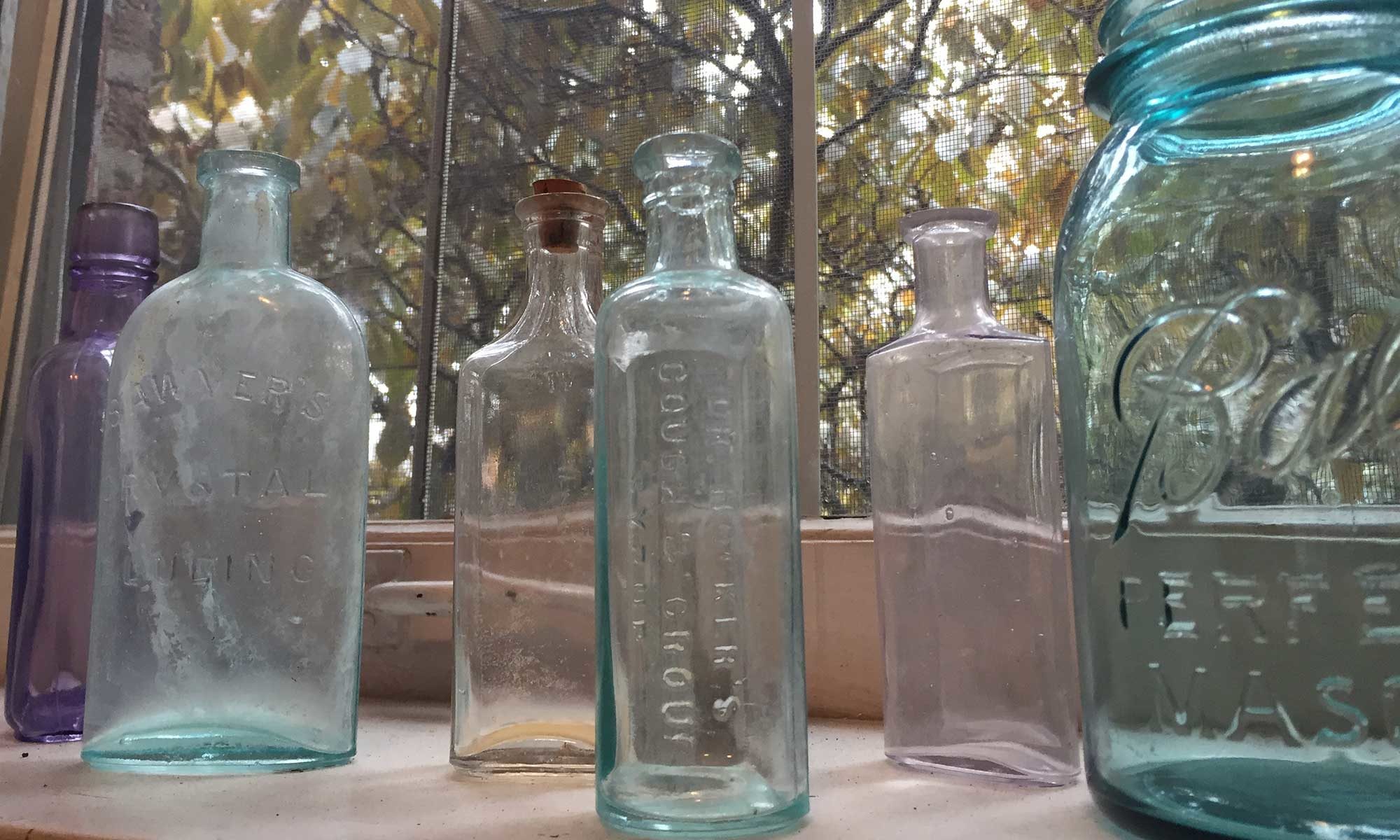A farm rests on the horizon, bales across the slope like spools scaled for giant seamstresses, crop rows spokes of a great green machinery. Birds crow from a brow of trees, and cows lean into the view. A line of gravel road bolts through the landscape and hurls itself up over a hill to disappear into a sunset stoked with coals, vat of molten cumuli grazing the treeline. Crows stand along a telephone wire in loping Morse, poles screwed into the ditch at receding intervals.
Up from empty space comes rattling Chester, dusting down the country road on his vehicular contraption: an old Schwinn decked out with baskets and welded-on hooks and pulleys. Workdays he rides with tools and ladder suspended, but tonight he’s fleet and free, flying down the hill home from the diner sans encumbrance. As he passes, the crows lift up and away, croaking, and he takes aim with his index finger, one, two, three. Not that he’d shoot them truly, leaving it to neighboring farmers to take their potshots and hang black carcasses as cautionary exemplars at the crossroads.
The first time Doris saw the dead birds, she’d screeched, “Oh, my god. That’s just awful.”
Awful it was indeed–or offal, the carrion eaters themselves slung in a heap and decomposing. He knew corvids were intelligent birds, so he didn’t put the warning past them altogether, though who knew how far the hex extended. Farmers targeted crossings by their main fields of sweet corn, gruesome No Trespassing signs just for crows.
